On the lost art of letter-writing.

Every time I visited my mother’s parents, I would be greeted by the sound of the typewriter. My dadu (grandfather), would be typing, seated cross-legged on a low, wooden bed. What was he typing? Letters. Dadu wrote letters in English and in Bengali. Many of his letters in English were typewritten. There were personal letters to family, friends and acquaintances. There were letters to editors of newspapers and many types of business letters. He was also a scribe to many people—young and old, rich and poor, unlettered and well educated. They wanted him to write applications, complaints, recommendations and petitions. He would listen to them carefully and write what they needed. All this was part of his voluntary role as a community elder.
For most, if not all of us, letters have now become part of a lost past—not only because letters capture moments bygone, but also because we no longer write letters. Regular letter writers usually had a stock of stationery on hand: postcards, inland letter forms, stamps, envelopes, notepaper and glue. This stock was replenished periodically.
My grandfather usually wrote his personal letters on postcards. He wrote neatly, in tiny letters, so that he could fit in a great deal in the limited space. Like many of his generation, he would inscribe the om symbol at the top of his missive. Frugality was crucial for my grandfather. He wrote on postcards because they were the cheapest way to send a letter. Also, he never ceased to remind us to not waste paper! Thamma, my father’s mother, was also a letter writer. Her six children lived in different parts of the country and she kept in touch through inland letter forms.
Bu hikaye Reader's Digest India dergisinin May 2019 sayısından alınmıştır.
Start your 7-day Magzter GOLD free trial to access thousands of curated premium stories, and 9,000+ magazines and newspapers.
Already a subscriber ? Giriş Yap
Bu hikaye Reader's Digest India dergisinin May 2019 sayısından alınmıştır.
Start your 7-day Magzter GOLD free trial to access thousands of curated premium stories, and 9,000+ magazines and newspapers.
Already a subscriber? Giriş Yap

ME & MY SHELF
Siddharth Kapila is a lawyer turned writer whose writing has focussed on issues surrounding Hinduism. His debut book, Tripping Down the Ganga: A Son's Exploration of Faith (Speaking Tiger) traces his seven-year-long journey along India's holiest river and his explorations into the nature of faith among believers and skeptics alike.
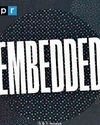
EMBEDDED FROM NPR
For all its flaws and shortcomings, some of which have come under the spotlight in recent years, NPR makes some of the best hardcore journalistic podcasts ever.
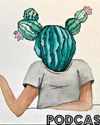
ANURAG MINUS VERMA PODCAST
Interview podcasts live and die not just on the strengths of the interviewer but also the range of participating guests.
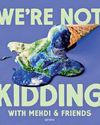
WE'RE NOT KIDDING WITH MEHDI & FRIENDS
Since his exit from MSNBC, star anchor and journalist Mehdi Hasan has gone on to found Zeteo, an all-new media startup focussing on both news and analysis.
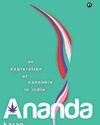
Ananda: An Exploration of Cannabis in India by Karan Madhok (Aleph)
Karan Madhok's Ananda is a lively, three-dimensional exploration of India's past and present relationship with cannabis.
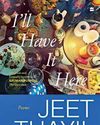
I'll Have it Here: Poems by Jeet Thayil, (Fourth Estate)
For over three decades now, Jeet Thayil has been one of India's pre-eminent Englishlanguage poets.

Orbital by Samantha Harvey (Penguin Random House India)
Samantha Harvey became the latest winner of the Booker Prize last month for Orbital, a short, sharp shock of a novel about a group of astronauts aboard the International Space Station for a long-term mission.

She Defied All the Odds
When doctors told the McCoombes that spina bifida would severely limit their daughter's life, they refused to listen. So did the little girl

DO YOU DARE?
Two Danish businesswomen want us to start eating insects. It's good for the environment, but can consumers get over the yuck factor?

Searching for Santa Claus
Santa lives at the North Pole, right? Don't say that to the people of Rovaniemi in northern Finland